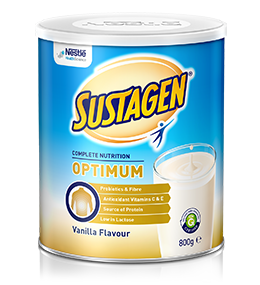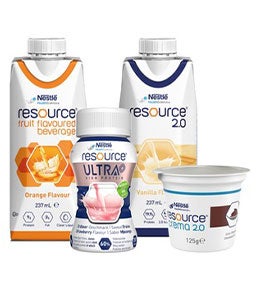Although malnutrition can refer to both over and under nutrition, it most commonly relates to undernutrition, and can be defined as a physical condition resulting from the shortage of energy (calories), protein and/or other nutrients.
Older people are at high risk of becoming malnourished, which is associated with both morbidity (health conditions) and mortality (death).1 The decline in function caused by malnutrition can impact severely on quality of life.
Age is associated with changes in the body, including a decrease in muscle mass and bone density, and increase in body fat. It is important to try to minimise the impact of these changes with good nutrition and appropriate physical activity. However, reasons such as reduced appetite, dentures which don’t fit properly, difficulty opening food packaging due to arthritis, and financial situations, can make adequate nutritional intake difficult.
Malnutrition may result in a loss of muscle mass, causing a decrease in strength which may impair mobility and the ability to care for oneself. Poor nutrition may lead to a slower recovery from illness, increased risk of infection, complications from surgery or hospitalisation, and poor wound healing.
Unfortunately these factors can further impair appetite, making it a vicious cycle. Left untreated, malnutrition can have an enormous impact on quality of life and may lead to a loss of independence. However even small changes can make a big difference to your health and wellbeing.
At Nestlé Health Science, we take aging-related malnutrition seriously and are actively involved in finding and delivering nutritional therapies to improve quality of life.
1. ANZSGM. 2015 Position Statement No 6. Undernutrition and the older person.
2.Deautz, N. Protein intake and exercise for optimal muscle function with aging: recommendations for the ESPEN expert group. Clinical Nutrition. 2014; 33:929-936.








